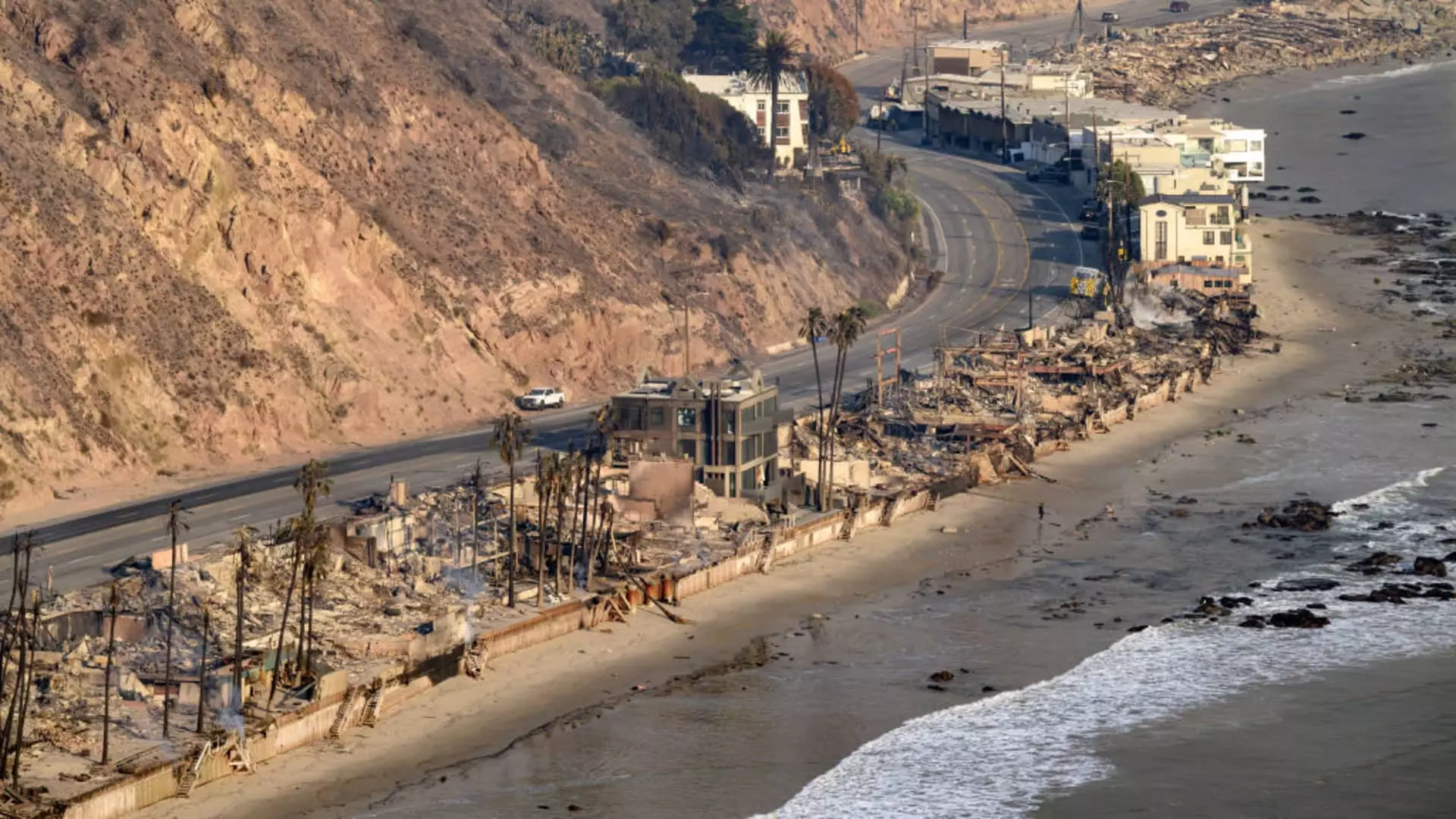In recent weeks, the city of Los Angeles has been battling devastating wildfires, leading to a ripple effect across multiple sectors, particularly air travel. Airlines, seeking to accommodate the unsettling circumstances faced by passengers, have introduced travel waivers to alleviate the burden for those with bookings to and from various airports in the region. This article delves into the implications of these wildfires on the aviation industry, the measures taken by airlines, and the broader impact on travelers and the economy.
As wildfires continue to pose a significant threat to the safety and security of Los Angeles residents, major airlines like American Airlines, United Airlines, Southwest Airlines, and JetBlue Airways have stepped forward with flexible rebooking policies. According to reports, travelers holding tickets for flights to Hollywood Burbank Airport, Los Angeles International Airport (LAX), Ontario International Airport, and John Wayne Airport can modify their travel plans without incurring any additional fees—valid until January 20. This initiative serves not only to ease the strain on passengers but also reflects an understanding of the unpredictable nature of emergencies like wildfires.
Despite the chaos on the ground, recent information from flight-tracking platform FlightAware indicated that operations at local airports were functioning as usual. However, this operational normalcy starkly contrasts with the stark reality faced by many residents. Power outages persist across Los Angeles County, further leading to advisories for using bottled or boiled water in severely affected areas such as Pacific Palisades, where extensive structural damage has been reported.
Various airlines have communicated the potential impact of these wildfires on their service capabilities. For instance, Southwest Airlines has expressed concerns that ongoing wildfires may disrupt their scheduled flights. In response, they have committed to providing passengers with the option to modify their travel routes to alternative California destinations like Palm Springs, Santa Barbara, and San Diego without any penalty. Such measures reflect the airlines’ commitment to passenger safety while acknowledging the broader implications of natural disasters on travel logistics.
However, amidst these challenges, conversations about consumer behavior have emerged. Delta Air Lines’ president, Glen Hauenstein, reported a notable decline in flight sales to Los Angeles. While there was no overwhelming spike in cancellations, the decreasing demand during this period highlights the apprehension among potential travelers. Hauenstein underscored that the airline remains resilient, with overall demand staying strong for other destinations. Such fluctuations mark a critical insight into how external factors—like wildfires—can lead to immediate changes in traveler sentiment, shaping the decision-making processes for many.
Interestingly, during challenging times caused by natural disasters, historical trends show an uptick in travel demand as regions begin the rebuilding process. Hauenstein acknowledged this pattern, suggesting that while the immediate impact on flight sales might be concerning, the long-term recovery may spur an increase in visits as people flock to support recovery efforts and reinvigorate the local economy.
The forthcoming months will be crucial for understanding the complete impact of the wildfires on air travel and local businesses in Los Angeles. The resilience of the community, coupled with strategic responses from airlines, may ultimately dictate how quickly normalcy returns to the city’s bustling travel network.
The recent wildfires in Los Angeles have brought to light the interplay between natural disasters and the aviation industry. While airlines are doing their part to adapt to the evolving travel landscape, the effects of these fires extend beyond immediate cancellations or changes in flight patterns. They reflect a broader call to action for preparedness and adaptability within both the airline industry and community stakeholders. As the region fights to recover from these devastating events, it is imperative that we continue to remain aware of the ongoing challenges and the resilience of the people affected.

